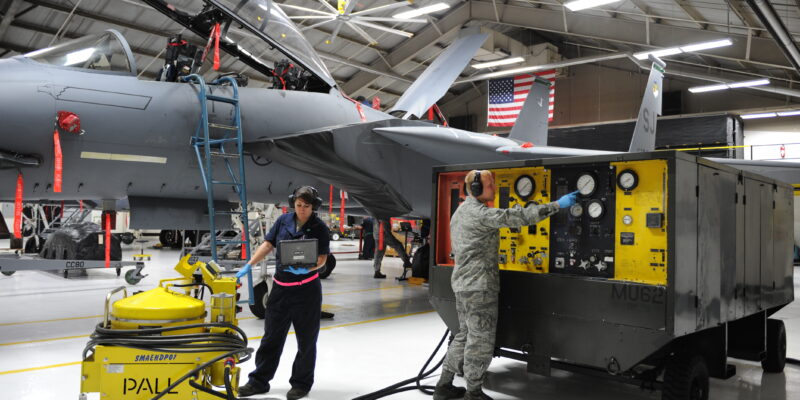
What is Aircraft Hydraulic Fluid?
Hydraulic fluid is the lifeblood of an aircraft’s hydraulic system. It’s a specially formulated liquid that transfers energy and keeps various mechanical components operating seamlessly. Without it, essential systems like brakes, steering, and landing gears wouldn’t function as needed.
Why is Hydraulic Fluid Crucial for Aircraft?
In the world of aviation, precision and reliability are non-negotiable. Hydraulic fluid ensures that control systems, including flight surfaces and landing gear, work properly. Can you imagine landing an aircraft without reliable landing gear? That’s where hydraulic fluid plays a starring role—ensuring smooth, safe operations every flight.
Key Components of Aircraft Hydraulic Systems
To fully understand the importance of hydraulic fluid, let’s look at the core components of the system it serves:
- Pumps: These provide the necessary pressure to move fluid through the system.
- Hydraulic lines and fittings: These transport the fluid to various parts of the aircraft.
- Reservoirs and accumulators: They store and manage the hydraulic fluid needed for smooth operation.
Characteristics of High-Quality Hydraulic Fluid
Not all hydraulic fluids are created equal. High-quality aircraft hydraulic fluid must meet certain standards to perform well in extreme conditions. The characteristics that make hydraulic fluid stand out include:
Viscosity and Temperature Stability
The ability to remain stable across a wide range of temperatures is crucial in aviation. Aircraft operate in environments that can swing from freezing cold to blistering hot. High-quality hydraulic fluid maintains consistent viscosity, ensuring smooth operation in any weather.
Corrosion Protection Properties
Hydraulic systems are made of metal components that can corrode over time. Quality hydraulic fluid contains additives that help protect these components, extending their lifespan and keeping the aircraft safe and reliable.
Anti-Wear Additives
Friction is inevitable when mechanical parts move, but high-quality hydraulic fluid contains anti-wear additives to reduce this friction. This helps to extend the life of pumps, valves, and other critical components.
The Consequences of Poor-Quality Hydraulic Fluid
Using poor-quality or improperly maintained hydraulic fluid can have serious consequences. Increased wear and tear, more frequent repairs, and even potential safety risks are just the beginning. The aircraft’s performance can suffer, and maintenance costs will skyrocket.
Signs of Deteriorating Hydraulic Fluid
How do you know when your hydraulic fluid is no longer up to the task? Here are a few telltale signs:
- A change in fluid color, often to a darker hue
- Increased noise in the hydraulic system
- Unresponsive or sluggish systems, especially in flight control or landing gear
The Importance of Quantity in Aircraft Hydraulic Fluid
Quantity is just as important as quality when it comes to hydraulic fluid. Too little fluid can lead to system failures, while too much can cause unnecessary pressure buildup. That’s why it’s crucial to regularly monitor and refill fluid levels.
How to Check Hydraulic Fluid Levels
Keeping track of hydraulic fluid levels is easier than you might think. Start by checking the reservoir, ensuring that the fluid level is within the specified range. If it’s low, top it off with the recommended type of fluid, making sure not to overfill.
How Often Should Hydraulic Fluid Be Replaced?
Hydraulic fluid doesn’t last forever. Over time, it can degrade, losing its efficiency and putting the aircraft at risk. Most experts recommend replacing hydraulic fluid at regular intervals, though the exact schedule can vary depending on flight frequency and environmental conditions.
Factors Affecting Hydraulic Fluid Longevity
Several factors influence how long hydraulic fluid lasts, including how often the aircraft is flown and the environmental conditions it operates in. For example, aircraft that regularly fly in extreme temperatures may need more frequent fluid changes.
Conclusion
When it comes to ensuring the safety and performance of aircraft, high-quality hydraulic fluid is essential. From powering the landing gear to controlling flight surfaces, this fluid ensures smooth operation and reliability. Keeping an eye on both the quality and quantity of hydraulic fluid can help avoid costly repairs and maintain optimal performance in the skies.
FAQs
- What happens if an aircraft runs out of hydraulic fluid?
If an aircraft runs out of hydraulic fluid, critical systems like landing gear and flight controls could fail, posing significant safety risks. - How often should I check hydraulic fluid levels?
It’s best to check hydraulic fluid levels during regular maintenance checks or before long flights to ensure everything is functioning properly. - Can I mix different types of hydraulic fluids?
Mixing hydraulic fluids is not recommended as it can affect performance. Always use the type specified by the aircraft manufacturer. - What causes hydraulic fluid to deteriorate?
Hydraulic fluid can degrade due to extreme temperatures, contamination, and wear over time. - What are the main additives in hydraulic fluid?
Key additives include anti-wear agents, corrosion inhibitors, and viscosity stabilizers to ensure the fluid performs well under various conditions.










